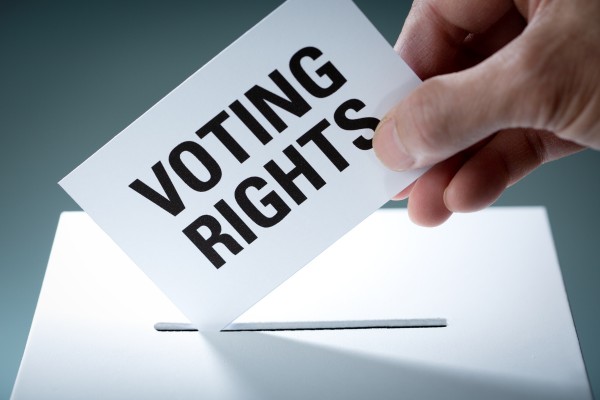Can Military Voters Vote Where They Are Stationed?
Serving in the military often means living in one place but calling another home. When elections arrive, that raises a real question for many service members: can you vote where you are stationed, or must you stick to your home state?
The challenge comes from how military life changes your ties to a community. You may spend years at a base, send your kids to local schools, and still be expected to vote in the state you left behind. That creates confusion not only for military personnel but also for spouses and eligible family members.
What remains clear is that your right to vote is always protected. Federal laws and programs were built to make sure service members and overseas citizens can take part in elections. The key is knowing the difference between a duty station and a legal residence. That’s where the real answer begins.
Contents
- 1 Can Military Voters Vote Where They Are Stationed?
- 2 1. Voting Residence vs. Station Location
- 3 2. Absentee Voting: The Default for Most Servicemembers
- 4 3. Changing Legal Residency to Vote Locally
- 5 4. Voting Rights of Military Spouses and Dependents
- 6 5. Quick Reference Voting Scenarios
- 7 6. Resources for Military Voters
- 8 7. Why Voting Verification Still Matters
- 9 8. Can Military Voters Vote Where They Are Stationed? – Final Answer
- 10 Voting from Anywhere Starts with Verification
Can Military Voters Vote Where They Are Stationed?
Military members cannot usually vote at their duty station unless they have gone through the process of making that state their legal residence. Your voting rights are tied to your legal home, not the base or post where you are currently serving.
Think of a soldier whose permanent home is in Texas but who is stationed in Virginia. Even though daily life is spent in Virginia, when election day arrives, the soldier will cast a Texas ballot through the absentee voting process. The same is true for service members stationed overseas. They continue to vote in their home state unless they take steps to update their legal residence.
Changing residency is possible, but it requires more than simply being present in a state. You must meet the requirements set by local law, which may include registering your car, paying state taxes, or showing intent to stay permanently. Only after this change can you register and vote locally.
This system helps preserve a clear line between a temporary assignment and a permanent home. It is also the reason absentee ballots play such an important role in military voting, giving service members and their families a reliable way to make sure their vote counts wherever they are stationed.
1. Voting Residence vs. Station Location

Orders may send you to new duty stations, but that does not automatically change where you vote. A voting residence is your legal home, sometimes called domicile, and it follows you even when military service requires you to live somewhere else.
Your station location only becomes your voting residence if you deliberately establish it as such. That means showing clear intent to make the new state your permanent home. The distinction prevents temporary assignments from altering your right to vote.
Key signs of domicile include:
- Paying state income taxes in that state
- Owning or renting property with the intent to return
- Holding a state-issued driver’s license or ID card
- Registering to vote with the local election office
These are common indicators, but not all are required, especially for military personnel. Your voting residence can remain valid even if you no longer meet all of these conditions.
A few important points to remember:
- Your “home of record” is not automatically your voting residence. The two can be different.
- A voting residence may remain valid even if you no longer own property or if your intent to return is uncertain.
- Even if your last address is no longer recognized as residential, you may still claim it as your legal voting residence.
In short, your voting residence is based on legal and civic ties, not on where you are physically stationed. This is why many service members continue to vote absentee in their home state rather than at the location of their current duty station.
2. Absentee Voting: The Default for Most Servicemembers
Elections do not pause just because you are away on duty. Whether you are stationed on a base stateside, deployed overseas, or serving aboard a ship, you can still cast your vote. For most military voters, this happens through the absentee voting process tied to their home state.
You do not have to be living abroad or even outside your state to use this method. The key factor is that your service keeps you away from the place where you are legally registered to vote. Absentee ballots are designed to close that gap, making sure military service never prevents participation in an election.
Federal programs strengthen this right. The Federal Voting Assistance Program (FVAP) and the Uniformed and Overseas Citizens Absentee Voting Act (UOCAVA) guarantee ballot access for:
- Active-duty members of the uniformed services
- Military spouses and other eligible family members
- United States citizens residing overseas
Central to this process is the Federal Post Card Application (FPCA). This form allows you to register to vote, request absentee ballots, and keep your voter registration status current. Depending on your state, the voted ballot can be returned by mail, fax, or email.
But one detail is critical: the voting residence address listed on the FPCA must be an address in the United States. According to the Federal Voting Assistance Program, placing an overseas address in Section 2 of the FPCA may automatically disqualify the application.
Absentee ballots cover federal offices, state elections, and, in many cases, local contests as well. What they do not extend to is the locality of your duty station, unless you have gone through the steps to change your residency.
3. Changing Legal Residency to Vote Locally
For many service members, there comes a point where the duty station begins to feel like home. You may buy a house, register your car, or decide to settle there after leaving the military. When that happens, you can take steps to make the state of your station your new legal residence.
Changing domicile is more than just living in a new place. It requires clear legal and civic actions, such as:
- Updating state tax withholding to the new state
- Registering a vehicle locally
- Obtaining a driver’s license or state identification card
- Declaring intent to remain permanently or indefinitely
Once residency is legally established, you gain the right to register and vote in that state’s elections, including local contests. At the same time, you give up the ability to vote in your former home state. Attempting to vote in both places is illegal and can carry serious penalties.
This decision is not just about elections. Changing domicile affects tax obligations, property considerations, and even family matters if you are married or own real estate in another state. Because of these wide-ranging consequences, it is wise to speak with a legal assistance attorney at your installation’s JAG office before making the change.
4. Voting Rights of Military Spouses and Dependents

Military orders often move entire families, which raises questions about how spouses and dependents fit into voting rules. The good news is that the law provides flexibility so families can stay connected to their home state without losing their right to vote.
Spouses have two options. They may choose to keep the service member’s domicile and continue voting there, or they can establish their own residency and vote in that state.
The Military Spouses Residency Relief Act (MSRRA) plays an important role here. It allows a spouse to maintain residency in their original state even after multiple PCS moves. That means they can keep voting absentee from their home state without having to change registration every time new orders arrive.
Consider a spouse originally from Texas who now lives with a service member stationed in California. Instead of switching to California’s voter rolls, the spouse can rely on MSRRA protections to keep Texas residency for both tax and voting purposes. This option often simplifies matters when families expect to move again in a few years.
Dependents who are 18 or older do not fall under these protections. They follow the same general voter residency rules as any other citizen and must decide where to register based on their legal residence.
5. Quick Reference Voting Scenarios
| Scenario | Where They Vote | Voting Method | Example |
|---|---|---|---|
| Stationed outside the home state | Home state (legal residence) | Absentee ballot | A soldier from Florida assigned to a base in North Carolina receives an absentee ballot from her Florida county and mails it back. |
| Stationed within the home state | Home state | In-person or absentee | An Air Force mechanic stationed in Ohio, his home state, votes at a local polling place or requests an absentee ballot if duty interferes. |
| Chooses a new domicile at the duty station | New state (after legal change) | Local ballot | A Marine from Arizona establishes legal residency in Virginia by updating taxes and voter registration, then votes locally in Virginia elections. |
| Deployed overseas | Home state | Absentee ballot (UOCAVA) | A sailor with Illinois residency, deployed in the Middle East, requests and returns an absentee ballot from her Illinois election office. |
6. Resources for Military Voters

Military members and their families have access to a range of tools that make the voting process easier to navigate. The following resources provide official guidance and step-by-step instructions:
- FVAP.gov – The Federal Voting Assistance Program offers forms like the FPCA, state-specific instructions, and deadlines for requesting and submitting absentee ballots.
- USA.gov/military-voting – A reliable federal resource that explains voting rights for service members, spouses, and overseas citizens.
- State election websites – Each state’s board of elections posts information on voter registration status, election dates, and how to return ballots.
Service members are not left on their own to figure this out. Help is available through:
- Voting Assistance Officers (VAOs): Located on most installations, they guide service members through voter registration and absentee ballot requests.
- Legal assistance offices: Judge Advocate General (JAG) attorneys can explain the legal consequences of changing residency and answer voting-related questions.
- Unit command administrative staff: A first point of contact for help with forms, deadlines, and election materials.
These resources ensure that whether you are at a stateside base, deployed overseas, or moving with your family, you have the guidance needed to make sure your vote counts.
7. Why Voting Verification Still Matters
For many military voters, completing an absentee ballot application feels like the last step in the process. Yet in some states, election offices may still require proof of active duty before finalizing voter registration status or sending out an official ballot. This extra step can be frustrating when deadlines are tight and election dates are quickly approaching.
Verification services make that process smoother. Using a trusted resource such as SCRACVS allows service members to provide instant confirmation of active duty to state agencies or local election offices.
Having that verification on file reduces the chance of ballots being delayed or applications being rejected. It also protects families who depend on absentee voting to ensure every vote counts, even when they are stationed far from home.
In highly regulated states, missing documentation can mean lost time and even a lost ballot. Verification gives military personnel, military spouses, and eligible family members peace of mind that their absentee voting process will not be interrupted, no matter where they are stationed.
8. Can Military Voters Vote Where They Are Stationed? – Final Answer
After looking at all the rules, one question still remains: can military vote where they are stationed? The answer depends entirely on residency.
Service members can vote locally only if they establish legal domicile in their station state. That means updating tax records, registering a vehicle, or obtaining a state driver’s license to show intent to stay. Once residency is confirmed, they may register to vote in that state and cast a ballot in local and state elections there.
For the vast majority of military voters, though, the process looks different. They remain tied to their home state and vote absentee, using tools such as the Federal Post Card Application to request ballots and keep their voter registration status current. Election offices then process those requests so the vote counts even if the voter is stationed thousands of miles away.
Changing residency should always be a thoughtful decision, not one made solely for voting convenience. Legal domicile affects more than elections, including tax obligations and long-term ties to a state.
Before making the switch, many service members choose to seek guidance from a legal assistance office to weigh the personal and legal consequences.
Voting from Anywhere Starts with Verification
Military service often takes you far from the place you call home, but it does not take away your right to vote. What matters is how you prove your connection to your legal voting residence. Whether ballots are sent overseas, to a ship, or to a base across the country, the process only works smoothly when records are clear and status is verified.
That is where SCRACVS helps. With secure and reliable active-duty verification, you can provide election offices with the proof they need to process voter registration or absentee ballot applications without delay.
Your vote is part of your civic duty, and every ballot shapes the communities and federal offices that guide the nation. Do not let paperwork stand in the way. Verify your military status now with SCRACVS and make sure your voice is counted wherever service takes you.






